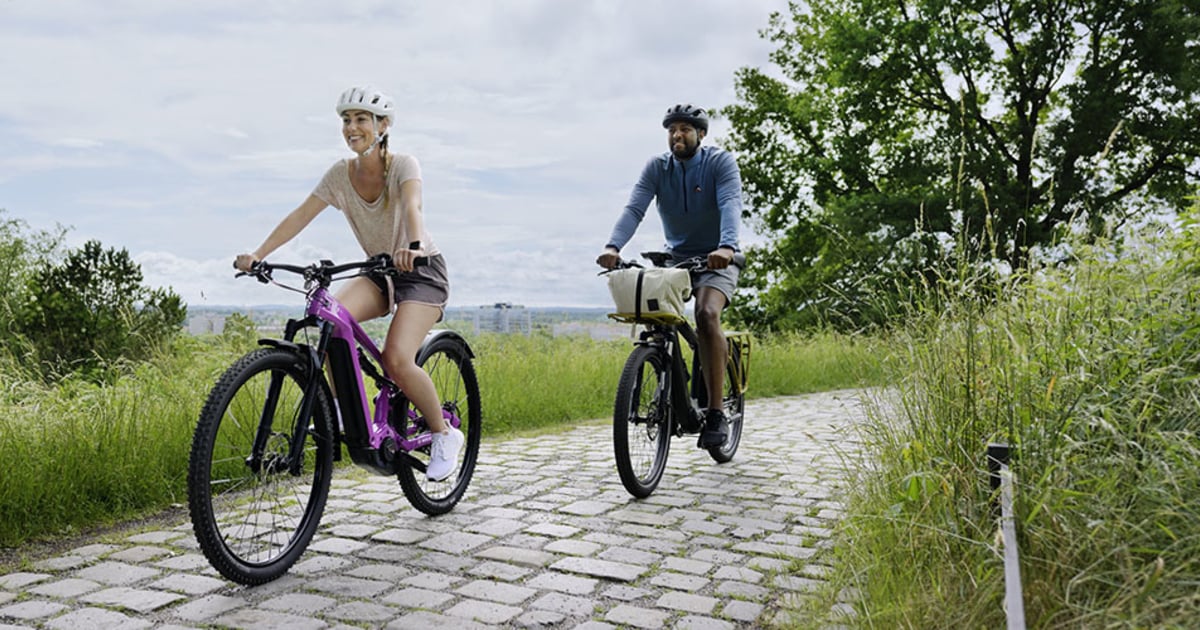
Bosch Group’s e-bikes segment has risen from a rounding error on income statements to $1 billion in annual revenue and the global market share leader.
Paul Thomas, soon-to-be president of Bosch Mobility Americas, said the revenue turnover is nice, but the success of the bike business isn’t necessarily measured in dollars. For the German tech and auto behemoth with $93.1 billion in sales annually, bike motors are ancillary to car parts, appliances and software.
The company’s e-bikes unit represents the ability to diversify, Thomas said, and at a time when the automotive industry is being pulled in all different directions – ICE to EV to hydrogen – diversification is the ticket to survival in the supply world. Recently passing the $1 billion sales mark was a milestone and innovation proof point, Thomas said.
“It’s important because I think it shows that Bosch is able to work in multiple areas of mobility and to take products that might not have had their beginnings in bikes but were generated based upon our know-how, and to see a need in a market that maybe no one saw before us,” Thomas told Crain’s in an interview this week at the Center for Automotive Research Management Business Seminars in Traverse City.
Housed within Bosch’s mobility division based in Farmington Hills, Mich., the e-bike business supplies electric motors, batteries and displays to some of the largest bike brands in the world, including its largest customer, Trek.
The company expects major growth as the popularity of e-bikes explodes around the world. As with the car business, connectivity is the next frontier for e-bikes. The company is developing new software for different services on the bikes, which it expects to be another growth driver.
The bikes have also helped increase brand awareness, Thomas said, demonstrating how the company is “able to scale something to a very high level, and we’re able to deliver quality.”
In addition to e-bikes, Thomas highlighted big bets on hydrogen and semiconductors. Bosch is planning to invest about $2.75 billion on hydrogen tech through 2026, and it has converted internal combustion-focused plants in Germany and South Carolina to hydrogen. In the same timeframe, the company said it will plow $3 billion into its semiconductor business.
Among the splashy investments and bold visions, Thomas also tucked in a mention of the Detroit Smart Parking Lab, a venture between Bosch, Ford Motor Co., the Michigan Economic Development Corp. and Dan Gilbert’s Bedrock real estate company. The American Center for Mobility, tapped to operate the Detroit facility when it was announced in 2021, opted out after the first year.
Thomas said the partners have committed to continuing the project, which aims to develop mobility and urban parking solutions, such as automated valet parking and wireless charging.
Automated valet parking developed at the lab has been deployed for commercial use in California and Europe. The lab also invites startups to tinker with their own technology. Stellantis was introduced to HEVO’s wireless charging tech at the lab before the automaker signed the startup to a contract.
The lab is not a revenue-generating operation for the founding companies, Thomas said. The value is in brand awareness and engagement with the city and startup.
“It’s basically opportunity-generating for our company,” Thomas said. “We love Detroit, so we said, how could we get a real presence in the city that deals with problems that the city may see?”
The venture appears to be working well for Bosch, because it is planning another mobility project in the city of Detroit akin to the parking lab. The company is keeping mum on details, though, at least for another few weeks.

